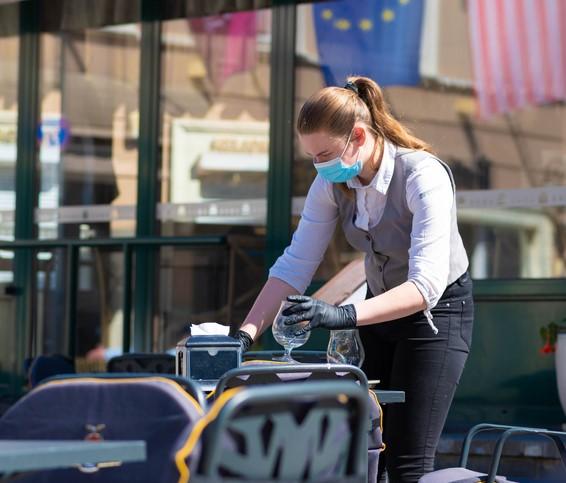As the pace of COVID-19 activity accelerates in a number of large countries, the global total surged past 11 million cases over the weekend, which was also marked by a record daily high case number—212,326—reported to the World Health Organization (WHO) on Jul 4.
It only took 5 days for world's number of COVID-19 cases to surge from 10 million to 11 million, and today the number stands at 11,520,461 cases, with 535,499 deaths, according to the Johns Hopkins online dashboard.
COVID-19 imperils access to HIV drugs
In a survey to gauge the impact of the COVID-19 pandemic on access to HIV drugs, the WHO found that 73 countries reported they are at risk of stock-outs, with 24 reporting critically low drug levels or supply disruptions resulting from travel restrictions and limited access to regular health services. The WHO described the findings of the survey, done in advance of the International AIDS Society biannual conference, today in a statement.
An earlier modeling study conducted by the WHO and UNAIDS projected that a 6-month disruption in access to antiretroviral medicines could double AIDS-related deaths in sub-Saharan Africa in 2020. In today's statement, the WHO said one-third of all people on HIV treatment globally are from the 24 countries already experiencing shortages.
In a separate WHO development, on July 4 it announced that its Solidarity Trial will stop the hydroxychloroquine and lopinavir/ritonavir arms, based on the recommendation of the trial's international steering committee. It based its recommendation on a review of interim trial results and a review of evidence from all trials presented at last week's WHO 2-day research and innovations summit.
The review found that the two treatments provided little or no mortality reduction in patients hospitalized with COVID-19. The WHO said some associated safety signals in the clinical lab findings were part of the related Discovery trial, which will be reported in an upcoming peer-reviewed journal.
Country surges push global total higher
With the United States continuing to report 7-day average record highs for daily new cases, including hot spots in the south and southwest, COVID-19 activity is surging in other countries as well, contributing to a continued rapid increase in global totals.
India yesterday reported a daily record high of nearly 25,000 cases, and with more than 23,000 today it has passed Russia to become the third worst-hit country, Reuters reported.
About 60% of India's cases are from New Delhi, as well as Maharashtra and Tamil Nadu states. However, cases are increasing in some less-affected parts of the country, including Kerala, Karnataka, and Assam states. The country is in the process of reopening its economy.
Cases in Brazil, the world's second worst-hit country, recently passed the 1.6 million case mark, according to the Johns Hopkins online dashboard.
Elsewhere, the Philippines reported 2,099 cases today, the second day in a row that the country has recorded more than 2,000 cases, according to Reuters. The country is starting to relax some strict measures that have been in place for the past several months.
Spikes elsewhere trigger restrictions
In other parts of the world, health officials are reimposing some COVID-19 measures, following national or local case rises:
- Australia closed the border between Victoria and New South Wales, its two most populous states, to help contain an outbreak in suburbs in the Melbourne area, Reuters reported. The closure is the first between the two states since the 1918 flu pandemic. Victoria reported 127 new cases today, its biggest rise of the COVID-19 pandemic, and physical distancing orders are in effect for 30 suburbs, with 9 public housing towers on complete lockdown.
- Bulgaria's health minister announced tighter measures on social distancing and masks, following an increase in cases after the lifting of restrictions.
- Israel ordered new restrictions, such as closing gyms and bars, amid a steep rise in cases after mostly containing the virus in May and reopening schools, beaches, and businesses.
- Spain has placed lockdowns in two areas following rises in cases, according to Reuters. One is Galicia region on the country's northern coast, and the other is Catalonia. A regional health minister said outbreaks in Galicia were linked to several bars.




















